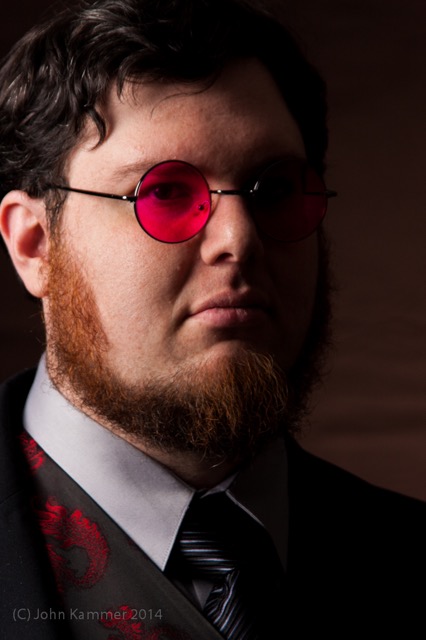Looking for a singular way to commemorate a lifetime milestone? Or a noteworthy evening with friends? There’s a new game in town, literally.
For the first time, a theatrical experience game–a bit of theater-style live-action roleplay (LARP)–is coming to Westchester.
Briarcliff native Warren Tusk, a theatrical experience game designer, will run his popular game, The Dance and the Dawn, a gothic fairy tale for 15 players who waltz and duel while in a search for true love, on Sat., May 2, from 6 p.m.-11 p.m., at ARC Stages, 175 Tompkins Avenue in Pleasantville.
To register to participate, visit www.paracelsus-games.com.
Cost is $25 (students, $15) for the evening.

There are boffer-style (physical combat) groups at Sarah Lawrence College and scattered throughout the county, but no groups running theatrical LARPS.
Dance, which was funded by a Kickstarter campaign, has been played at The Brick Theatre in Williamsburg, Brooklyn, and dozens of times around the world.
Participants fill out a brief casting survey to be fit to the best role for them. There are seven female and six male parts available.
“I’m excited to help people live out their own theatrical narratives through this fun and social medium,” said Tusk. “Dance is the kind of game that makes it easy for new players to get swept up in the action; it’s introduced many to the hobby.”
Dance and other games he has written are also available on his website so people can run a game on their own. Included is a game written by Betsy Isaacson, daughter of author Walter Isaacson, and as well as a private event service for those hoping to feature one of his games at a celebration or simply to engineer a memorable evening in the NY metro area.
While role-play has its roots in early make-believe games, today’s more modern role-playing hobby can be attributed to the mega-popular game Dungeons & Dragons, which, since the 1970’s, spawned worldwide interest in the medium. Live action role play was influenced by D&D, but also includes elements of theater and historical reenactment.
Tusk fell in love, as he puts it, “pretty hard and fast,” with theater LARPing in 2003, when introduced to the medium as a member of the Harvard-Radcliffe Science Fiction Association (HRSFA). “I joined up for the whiz-bang fantasy-fulfillment element of it all,” he says, “but I stuck around for the power and the complexity of the stories that got told.”
As a 17-year-old college sophomore, Tusk was inspired by the opportunity to combine his interests in gaming and theater. He had often performed onstage in his youth and in Harvard student theater. And he was deeply involved playing many kinds of games, from board games and video games to tabletop role-playing games like Dungeons & Dragons.
Theatrical experience games generally feature a story with pre-written characters, each with their own personality, motivations and goals, but no script. Participants interact with each other while improvisationally playing their characters, choosing their own actions and dialogue. Similar to murder mystery games, a LARP can vary in length from less than an hour to a weekend or longer.
There are various styles of LARPs. Theater LARPs center on improvisational play with elaborate stories and complex characters. Boffer-style, because they focus on physical combat using foam weapons, are most prevalent and best known. Freeform (often “Nordic LARPs”) games emphasize emotional intensity in realistic and minimalist settings and are a game design particular to Norway, Denmark, Sweden and Finland. Dozens of college campuses across the country have active groups. There is a strong community in the Northeast and are manifold role-play groups around the world.
Tusk wrote his first game in 2003, but his career as a LARP creator truly began in 2006, when he wrote Dance, based on an innovative tabletop game written by a friend; it draws on sources from philosophy-of-gender theorists to Japanese anime. His study of religion, folklore, bioethics and the law (Harvard ‘05, U Penn ’09) and varied media influences inform his creative work.
“It never really occurred to me, once I knew about these games, that I wouldn’t try my hand at writing them,” says Tusk. “I was embedded in a creative and motivated circle of people; if you cared about something, in that crowd, you’d find a way to try and make it your own.”
Tusk has run his games at Intercon, the annual LARP convention in Massachusetts, and all over the Northeast. His wife, a middle school teacher and fellow Harvard-vintage LARPer, will use a theater LARP in her classroom this spring to teach about the Age of Exploration.
